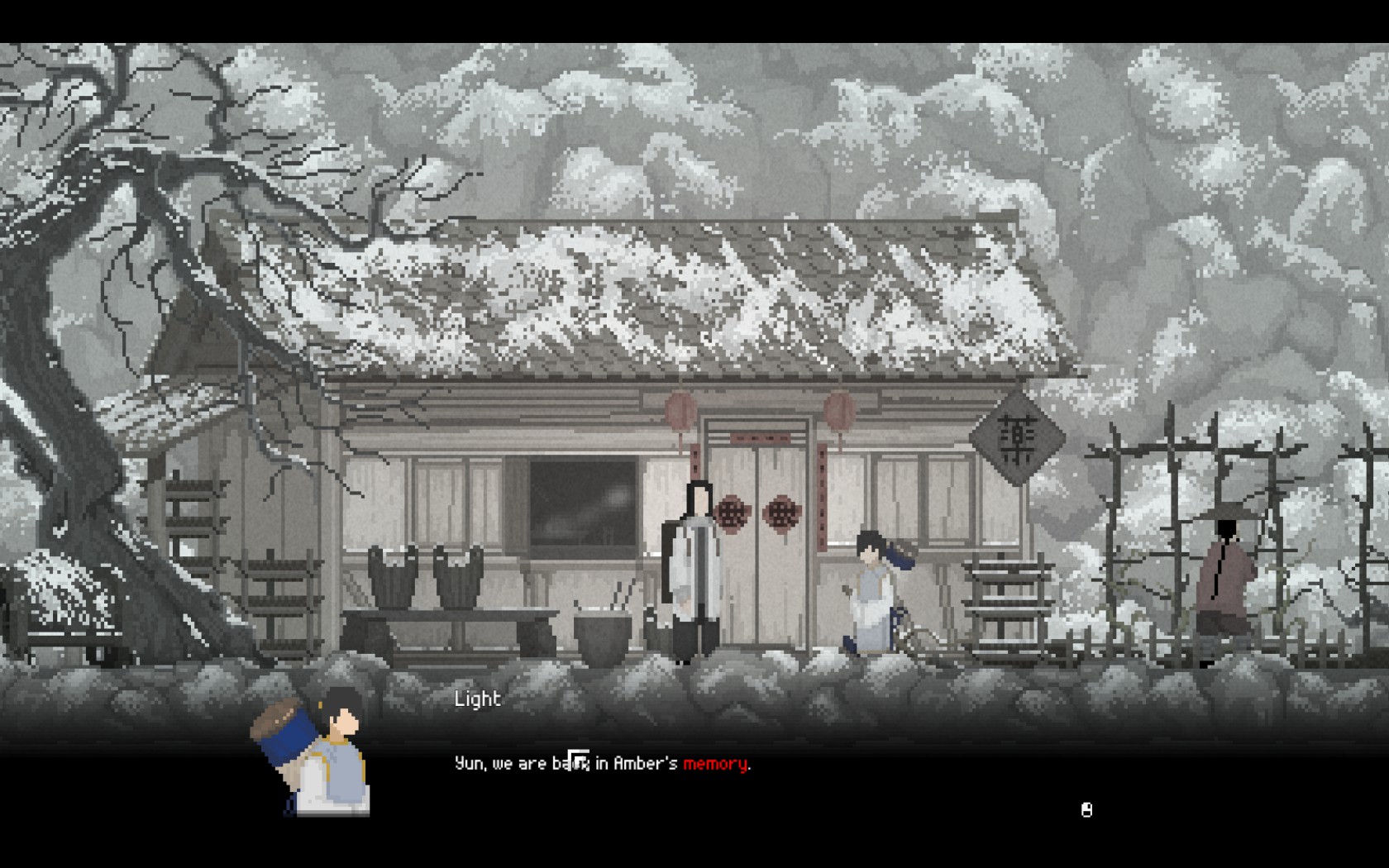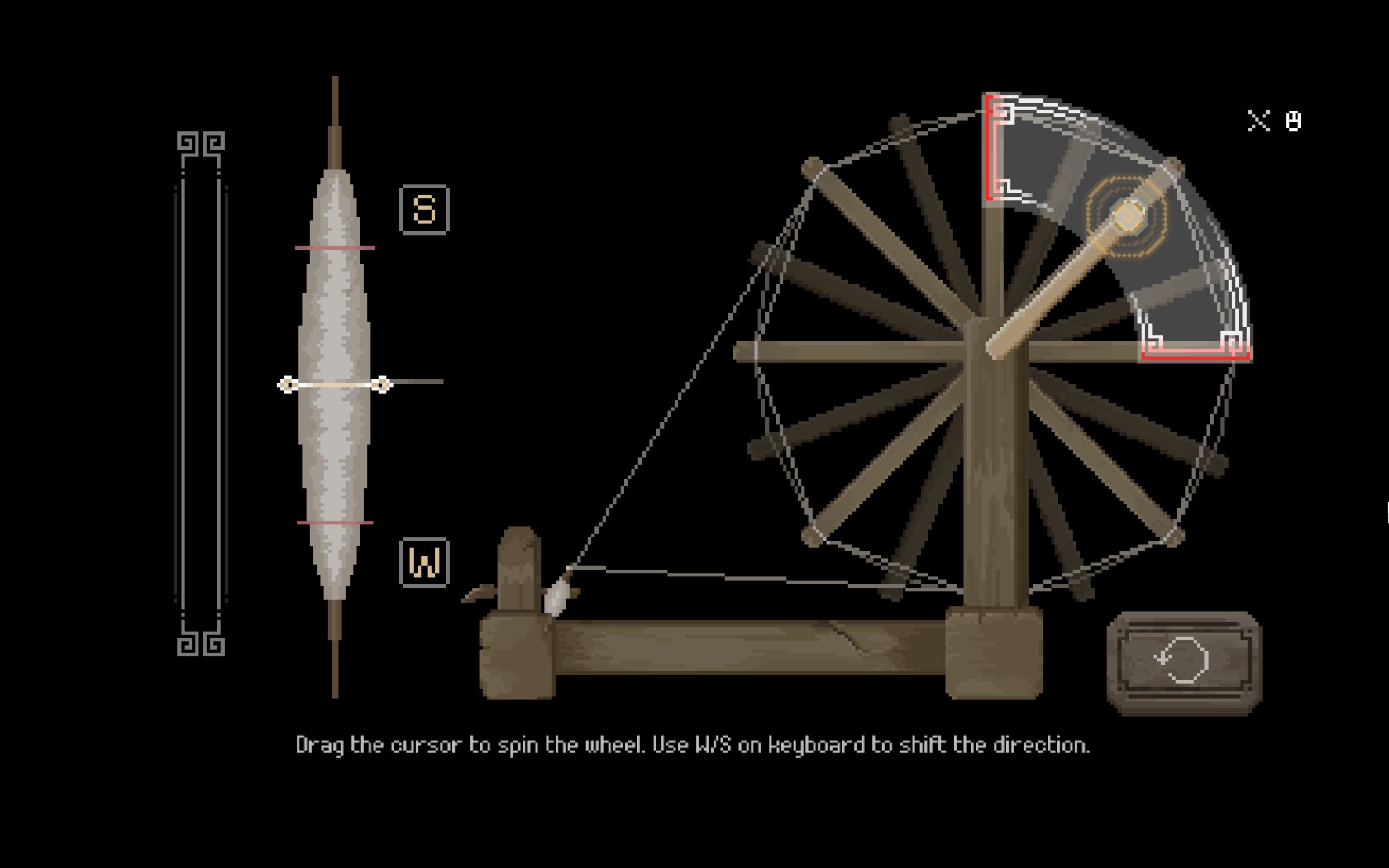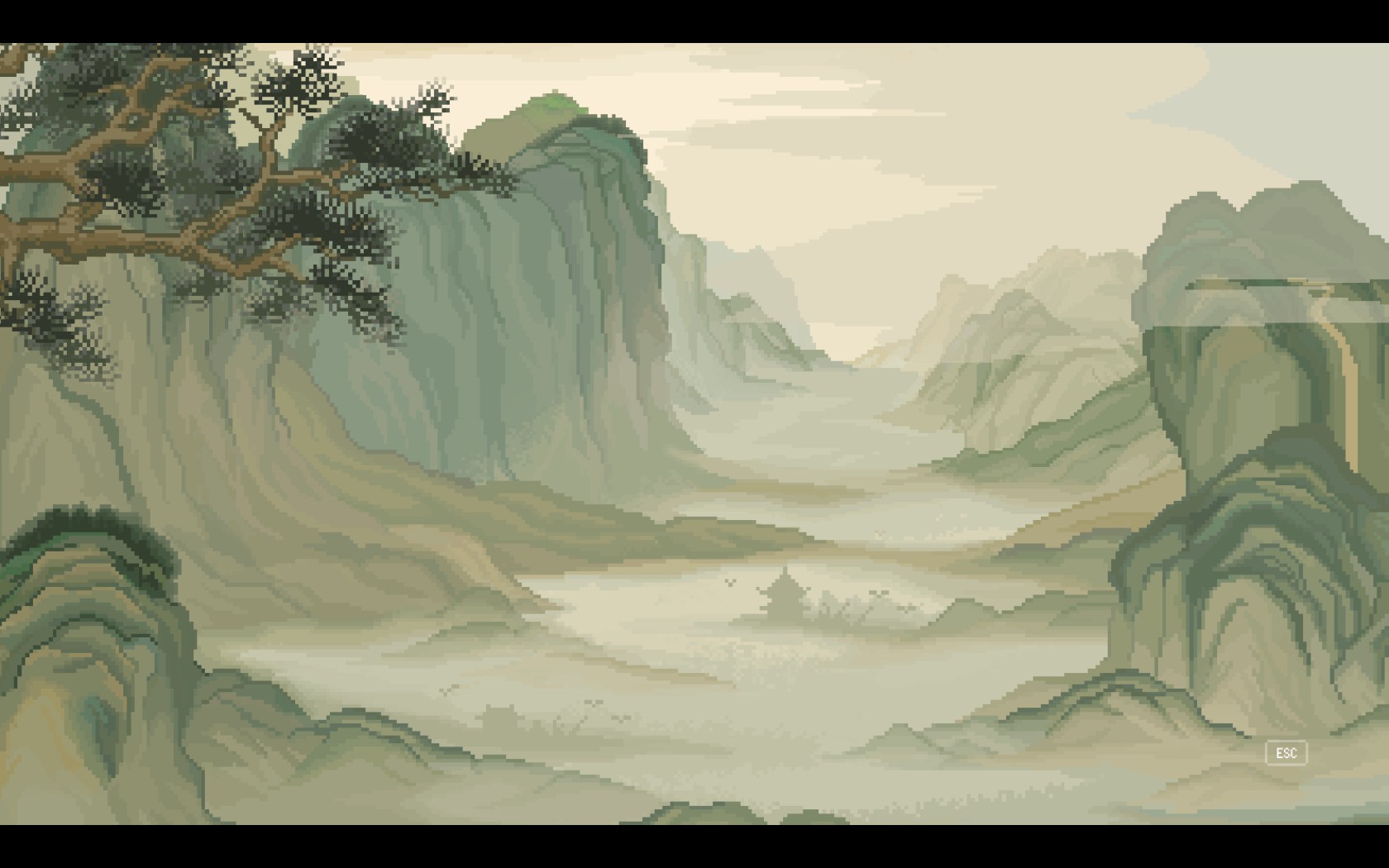Rewind and delve into Chinese mythology and folklore in a puzzling mystery.
Type: Single-player
Genre: Adventure
Developer: MistyMountainStudio
Publisher: Gamera Game
Release date: 10 September, 2021


Intro
The Rewinder is a true point-and-click delight. Rich cultural connections in the narrative and art build a fantastic game world with fun puzzles to engage the mind for a pleasurable immersive adventure. Although the main character is not a detective, there is a mystery to be solved, and fans of paranormal investigations such as the Blackwell universe will find this game along the same vein.
Game Universe
Centuries ago, the Four Keepers granted a select few the ability of Rewind, entering and influencing memories to alter the timeline as needed to maintain the Reincarnation Cycle. In this universe deeply rooted in Chinese mythology and folklore, Yun is the last of the Rewinders. With the aid of the spirit Light, he is tasked with investigating and solving the mystery of what happened in Reed River Village seven years ago.

Gameplay and Mechanics
The player acts as Yun during the majority of the game, although there is one part where the player acts as Light. Some features of the gameplay and mechanics are typical of the point-and-click genre. Icons indicate what actions can be performed with objects, such as a question icon for information or flavor text, hand icon to pick up inventory items or tools, speech bubbles for chatting, and arrows to indicate directions of doors and paths. Some of the tools are common to point-and-click games, such as the pickaxe and lighter, while others are unique, such as the pipa (a traditional Chinese plucked string instrument). Relevant clues and information are collected in a journal log and gallery. While dialogue text is sometimes presented as options that the player can select, as far as I can tell the choices don’t actually change the game’s ending or even influence flavor.
Although certain aspects of the gameplay and mechanics will be familiar to point-and-click players, I found several of the puzzles innovative in their clever use of math, computational thinking, and logic. I particularly enjoyed the lever scale puzzle. Some of the puzzles do require timing and coordination, such as the spinning wheel. Puzzle instructions and assistance are usually delivered by Light, which adds to the immersive feel and experience.

The Rewinder’s true power is the ability to Rewind, to enter memories and change the past, altering the outcome of people’s lives. Going into memories is intimate, so getting to know the villagers as individuals is crucial. To enter a memory, Yun must collect a memory item from a person and bring it to the shrine, unlock the shrine by watching a scene and performing the same movements in reverse, and know whose memory he is entering. Once in the memory level, Yun must collect Senses to try to influence people to make different decisions. Some Senses can be collected merely by looking around, but others must be collected from the thoughts of other characters in the memory when they’re in a state of musing. By figuring out which Senses will sway key characters into making different choices when they’re in a state of hesitation, their future will be changed. There are some timing aspects to the memory levels, but the level can be paused, fast forwarded, or reversed to checkpoints as wanted or needed.
The game autosaves at checkpoints, but as of the time of review there is currently no manual save option. However, after the game has been completed once, the Karma Stone will unlock, allowing the player to jump to different chapters and checkpoints if needed to unlock the secret memory level and finish all of the achievements.
Art Style and Graphics
The Rewinder beautifully and brilliantly uses retro pixel art to evoke Chinese ink wash paintings, pushing the boundaries of richly detailed pixels as a true art form. There are even subtle background and atmospheric animations, such as blinking eyes on masks on a wall or falling leaves, rain, and snow. While the game is rich in scenic and mythological details, the level of detail for human-like characters is frequently less, with most of them lacking facial features. In-game texts, such as notes and signs, are written in hanzi (Chinese characters), and an English translation overlay will pop up when clicked on or as needed.

Sound and Music
While most of The Rewinder’s dialogue is presented through unspoken text, there are a couple of places with voice narration or singing in the Chinese language. Although I lack enough knowledge of the Chinese language to rigorously evaluate the quality, it sounded pleasing to my American ears. From the number of voice actors in the credits, I wonder if there is more voice work in the Chinese version than the English version.
The soundtrack is where the audio really stands out, and I could see myself buying and listening to it outside of the game. The music uses traditional Western and Chinese instrumentation with occasional electronic elements to create rich and immersive aural experiences. This is further enhanced by excellent ambient sound effects, such as wind in the trees, characters sighing, and a scribble sound for journal entries.
Extras
The game has 21 possible Steam achievements, some of which are missable. I have yet to unlock the secret memory level, but I believe it has something to do with collecting flowers for the Tree Sage. I’m eager to finish the achievements and uncover the secret to hopefully answer my remaining questions about what happened in Reed River Village.
Verdict
The Rewinder is a point-and-click gem deeply rooted in Chinese mythology and folklore, well worth buying at full price ($14.99 at the time of review, more than 6 hours of content for first playthrough, plus additional play time for unlocking secrets). Since the game’s release, the developer has continued to make updates, not only to fix bugs but also to make quality of life improvements such as refining the English translation. The ending leaves room for a possible sequel, which I would love.










